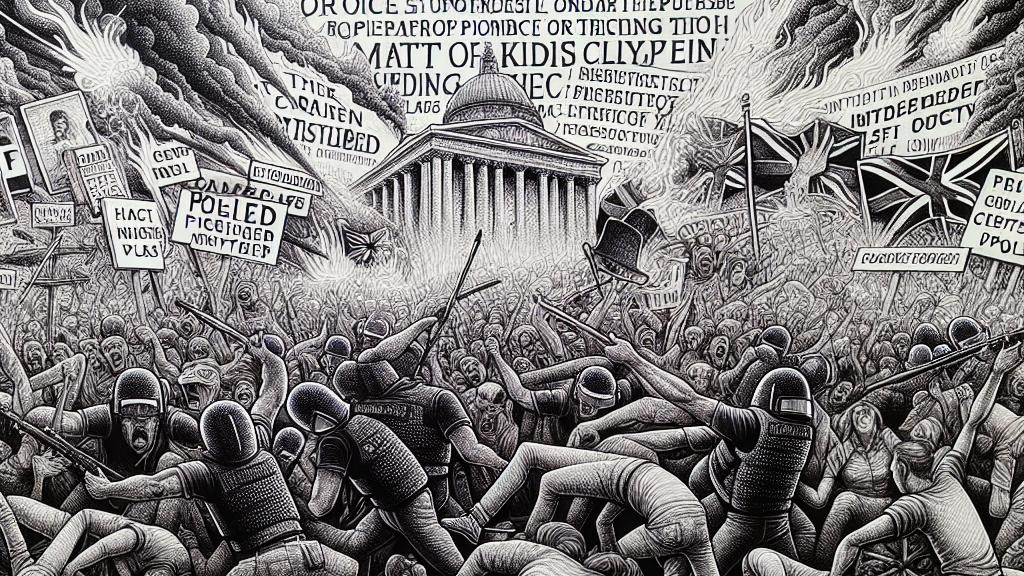Elon Musk's Provocative Tweets Ignites U.K. Turmoil: A Call for Responsibility?
Overview
- Elon Musk's tweets about civil war raise alarms amid escalating U.K. unrest.
- The U.K. faces riots driven by misinformation and far-right propagandists.
- Calls for social media companies to enhance accountability and curb harmful content.

Context of the U.K. Unrest
The recent unrest in the United Kingdom follows a tragic event on July 29, 2024, when a stabbing during a children's dance class in Southport led to the deaths of three young girls. This tragedy sparked a wave of public grief, which quickly escalated into nationwide protests fueled by a viral wave of misinformation on social media. As false narratives emerged about the attacker’s identity, many individuals seized the opportunity to express anti-immigrant and Islamophobic sentiments. The unrest has spread across multiple regions, creating a chaotic environment marked by violent clashes between police and far-right demonstrators propagating hate and misinformation.
Musk's Impact on the Situation
In the midst of this turmoil, Elon Musk's provocative remarks have drawn critical attention. His statement suggesting that 'civil war is inevitable' in the U.K. has been seen as highly irresponsible, particularly by Justice Minister Heidi Alexander, who warned against using such incendiary language during times of crisis. Musk's tendency to challenge government narratives and his confrontational approach on social media raise urgent questions about the implications of celebrity influence in political discourse. By amplifying contentious views, he risks further fueling unrest and undermining efforts to stabilize affected communities.
The Need for Corporate Responsibility
The calls for heightened corporate responsibility among social media platforms like X (formerly Twitter) have intensified. As government officials demand accountability, there is a burgeoning consensus that these platforms must develop stricter content moderation policies to prevent the spread of misleading information and harmful rhetoric. The proliferation of harmful content not only endangers public safety but also sows division within society. Social media companies hold a unique position in shaping public narratives, and their actions—or inaction—can have lasting consequences, highlighting the need for a commitment to responsible communication and community-oriented policies.
Community Resilience and Counter-Protests
In parallel with the far-right protests, numerous community organizations and counter-protesters are emerging as crucial voices advocating for unity and tolerance. Groups such as 'Stand Up to Racism' are mobilizing to counteract the hate fueled by misinformation, illustrating a strong desire for community cohesion amidst the chaos. These counter-protests serve not only as a rejection of extremist rhetoric but also as a testament to the resilience of individuals committed to fostering dialogue and understanding across cultural boundaries. Encouraging these grassroots movements plays an essential role in healing divisions and promoting social harmony in the aftermath of unrest.
Looking Ahead: Strategies for Long-term Solutions
Addressing the underlying issues that have led to the recent turmoil is critical for long-term peace in the U.K. This requires a collaborative effort among government leaders, social media platforms, and community organizations. Implementing comprehensive strategies—including robust policies for combating misinformation, promoting educational initiatives about media literacy, and fostering dialogue among diverse communities—will help to mitigate the risk of future unrest. These steps can lead to a more informed citizenry, reduce societal polarization, and ultimately strengthen democracy in the face of hateful ideologies.

Loading...